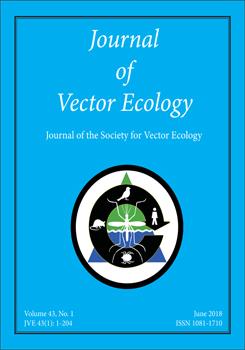We sampled mosquitoes across 18 sites established at different elevations and stretching from the north to the south of Isla Santa Cruz, Galápagos. Two commonly occurring species, Ae. taeniorhynchus and Cx. quinquefasciatus, were collected along with environmental variables characteristic of the trapping sites to assess their influence on mosquito abundance and occurrence in the dry season of 2015. We captured Ae. taeniorhynchus at 14 out of 18 sites and Cx. quinquefasciatus at low and high elevation sites on Santa Cruz. We utilized two generalized linear models; the first assessed the influence of environmental variables on abundances of Ae. taeniorhynchus and the second assessed the influence of these variables on the presence of Cx. quinquefasciatus. Populations of both mosquito species declined with elevation. Rainfall data were limited, as we sampled during the dry season of 2015. Distance to mangroves and maximum humidity were significant in influencing the abundance of Ae. taeniorhynchus, while maximum humidity was found to significantly influence the presence of Cx. quinquefasciatus. Both species occurred in sites where temperature, precipitation, and humidity should allow for mosquito development as well as parasitic development of the protozoan parasites that cause avian malaria. Further research involving year-round sampling of mosquitoes and accompanying meteorological data as well as experimental studies on vector competence are required to understand disease dynamics of parasites such as avian malaria in Galápagos.
How to translate text using browser tools
1 June 2018
The Influence of Ecological Factors on Mosquito Abundance and Occurrence in Galápagos
Samoa Asigau,
Patricia G. Parker
ACCESS THE FULL ARTICLE
It is not available for individual sale.
This article is only available to subscribers.
It is not available for individual sale.
It is not available for individual sale.

Journal of Vector Ecology
Vol. 43 • No. 1
June 2018
Vol. 43 • No. 1
June 2018
Aedes
Culex
distribution
environmental factors
Galápagos
mosquitoes




